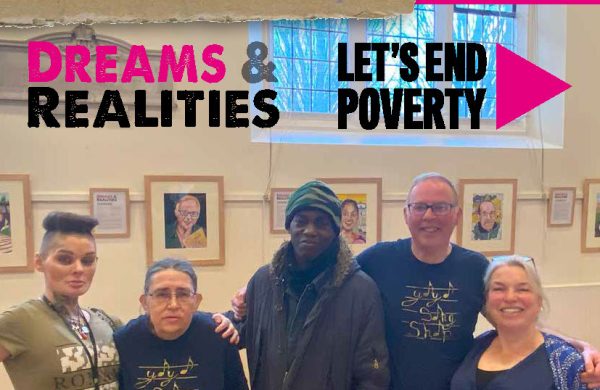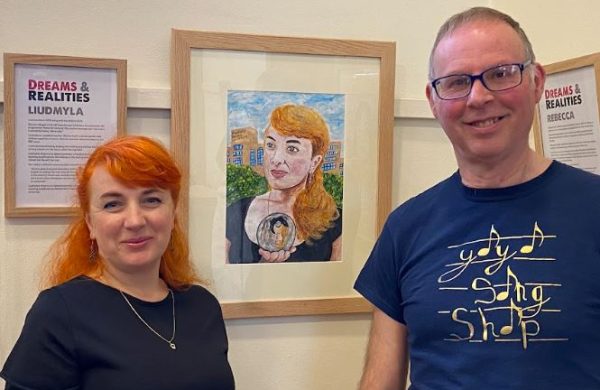Gathering on the Margins – 2 June
In this week’s gathering we discussed how the Coronavirus crisis has impacted the lives of children and young people.

We have these gatherings every Tuesday at 2 pm. Join us on Zoom to connect with people across the country to hear each other’s stories, discuss issues that we are facing and share advice.
Join us on Zoom by clicking the link below, or call 0131 460 1196 and using the meeting ID: 193 697 232
This week we heard from:
- Wayne from Nightsafe, a charity which supports homeless young people in Blackburn and Darwen
- Zoe from the Food Foundation who has been researching how the crisis has been affecting children’s access to food
- Rys Farthing who advocates for young people’s rights, especially digital rights
We were also joined by Sarah Knowles from Healthwatch Blackburn with Darwen, and actor/writer Ellis Howard.
Wayne told us about some of the difficulties that Nightsafe have faced over the last couple of months supporting homeless young people during the pandemic. Both the night-shelter and the daycentre, which are vital lifelines for many young people, were forced to shut during lockdown, but Nightsafe are still running three supported housing projects, accommodating sixteen young people.
Wayne told us that one of the major issues affecting young people is that stopping of education and the cancellation of courses and the structure that they provide is having a negative effect on mental health. But staff are finding new ways to engage with the young people living in the supported housing, such as inter-house events and competitions, and some of the residents have really embraced using this time to learn skills such as cooking.
The pandemic has caused lots of difficulties for Nightsafe, but as we are all learning to work in new ways, there are things they are hoping to carry forward into their future work. Wayne reflected that communication across the organisation to improve, and this is something they can take into the future. Find out more about Nightsafe here.
The Food Foundation has been doing research on the impact of the crisis on vulnerable groups and their food experiences. Zoe told us that at the beginning of the crisis there was a major supply issue of there not being food in shops, but now economic issues are more critical and intense and this is likely to continue in the recovery phase. There have also been major issues with the systems that are supposed to ensure that children are still able to access free school meals.
The Food Foundation are sharing the findings of this research with government departments and the media to try and shape the public narrative about this issue and allow people to understand people what has been happening. They have also have been recording podcasts with their young ambassadors, but this has been very difficult due to issues around digital exclusion. You can listen to the experiences they were able to record here.
Rys Farthing works on involving disadvantaged and marginalised young people in discussions about social issues. She told us that young people are now spending twice as much time online as they did before Covid, which has created a new frontier of inequality. Rys says that when thinking about youg people’s digital rights you can divide them into two categories: protection rights and participation rights.
- Protection rights – Research has shown that factors like living in care or having mental health difficulties heightens the risks that young people face online, but very little research has been done into how living in poverty can impact these risks too. It is important not to assume that all young people are digital savvy and know how to protect themselves online. Lack of access to a high quality digital literacy curriculum means that young people facing inequality face much higher online risks.
- Participation rights – This is something not many people were talking about before Covid, but we are now. Devices such as laptops and phones are now vital to education and participating in many aspects of life. A lack of reliable broadband connection is also a big problem for many young people, and having to pay for expensive data packages is a new form of the poverty premium. There is also need for education about how to use these digital resources.
However, Rys also sees the rise of the digital as being a space for incredible opportunities for young people. She hopes that increased digital civic engagement will be a way to tackle inequality and create new openings for social mobility. You can find out more about Rys and her work here.
Covid-19 is a global pandemic, affecting the lives of people in poverty across the world. Next week we will be shifting our focus beyond the UK and exploring the theme of global solidarity.



